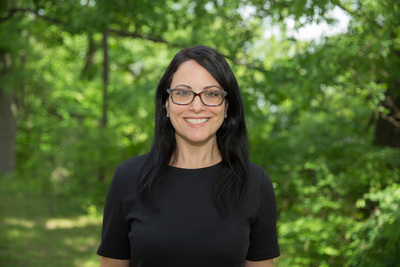
Joanne E. Marciano
(Michigan State University)
Dr
Teacher Education
Education
Equity
Social Change
Social Justice
Teaching
"I think we're all teachers even though we're students": Examining Youth Perspectives of Peer Suppor
Youth of color enrolled in urban public high schools, particularly those students who seek to be the first in their families to graduate from college, frequently encounter barriers to their college readiness and access. This study engaged an analytic approach built with culturally relevant and sustaining theories of education to examine how 10 youth of color enrolled in 12th grade at a Title 1 public high school in New York City provided and/or received support from peers as they navigated such barriers. The study utilized a youth co-researcher methodology to amplify student voices about an issue directly connected to their lives. Two findings emerged across data analysis: (1) students asserted collective notions of academic achievement and (2) challenged what they perceived as inequitable access to resources and opportunities as they supported their peers’ college readiness and access. Taken together these findings provide new insights into possibilities for building from students’ interactions with peers across contexts of curriculum, teaching, and research in urban schools.
By:
Joanne E. Marciano
Thursday, Apr 4, 2024
YOUTH EMPOWERMENT
+1

Leave a comment
Generating New Narratives: Examining Youths' Multiliteracies in Youth Participatory Action Research
This paper examines the multiliteracies practices (New London Group, 1996) of 20 high school students who participated in a weeklong summer research institute at the start of a 6-month long community-based youth participatory action research (YPAR) initiative. Data analyzed included 20 digital multimodal compositions produced by youths, individual interviews with youths, and observations of youths’ participation in the YPAR initiative. Data analysis utilized theories of multiliteracies practices (New London Group, 1996) and culturally sustaining pedagogies (Paris & Alim, 2014) enacted across contexts of YPAR (Fine & Torre, 2004). Findings contribute new insights about students’ multiliteracies practices in YPAR in two ways. First, we examine how learning about research methods shifted students’ understandings of research and the role their experiences could play in YPAR. Second, we examine how students’ digital literacies practices (Lankshear & Knobel, 2008) supported them in generating new narratives about their community in digital multimodal compositions. Finally, we consider how insights gained from our examination may support educators in developing and enacting culturally sustaining (Paris & Alim, 2014) learning contexts that build with students’ multiliteracies practices as strengths while challenging persistent educational inequities.
By:
Joanne E. Marciano
Thursday, Apr 4, 2024
YOUTH EMPOWERMENT
+1

Leave a comment
Centering Community: Enacting Culturally Responsive-Sustaining YPAR During COVID-19
Abstract
Purpose – This paper aims to provide insights for educators seeking to enact culturally responsive-sustaining education and research in the midst of the COVID-19 global pandemic. The authors examine what happened when the community-based Youth Participatory Action Research (YPAR) initiative they engaged with traditionally marginalized high school students was interrupted as a result of physical distancing necessitated by COVID-19.
Design/methodology/approach – Data for this inquiry were taken from a broader on-going ethnography of youth’s participation in the YPAR project and included audio and video recordings from meetings of the YPAR initiative and messages exchanged between and among authors and youth. Authors used components of culturally responsive-sustaining education and theories related to student voice as an analytic frame through which they considered how the COVID-19 pandemic influenced their work. Findings – Three findings are examined in this paper. They consider: how youth participants and the authors stayed connected after they were no longer able to meet in person; how youth chose to center the needs of the subsidized housing community where they lived while continuing their work; and how youth and authors navigated the uncertainties they encountered in looking ahead to future possibilities for their study as the pandemic continued. Originality/value – This study provides urgently needed insights for educators and researchers grappling with how they may enact culturally responsive-sustaining education and research during the COVID-19 global pandemic and beyond.
By:
Joanne E. Marciano
Thursday, Apr 4, 2024
YOUTH EMPOWERMENT
+1

Leave a comment
"Our Voice and Dreams Matter": Supporting Youths' Racial Literacy
This qualitative study examines how youth participants in an ongoing community-based
literacy initiative sought to increase awareness of racial justice among residents of their subsidized housing community in support of the Black Lives Matter movement in summer 2020 and throughout the 2020–2021 academic year. We utilize theories of racial literacy and critical arts-based literacy to examine youths’ engagement in 44 weekly two-hour-long Zoom sessions of the literacy initiative held between June 2020 and June 2021. Specifically, we examine how youths designed, facilitated, and participated in critical arts-based literacy projects related to children’s and young adult literature they chose to read focused on racial justice. Findings contribute new insights into youths’ enactments of racial literacy, possibilities for art-making to support youths’ racial literacy, and the urgent need for literacy
instruction responsive to youths’ voices and dreams, particularly during
times of crisis.
By:
Joanne E. Marciano
Thursday, Apr 4, 2024
YOUTH EMPOWERMENT
+1



Leave a comment